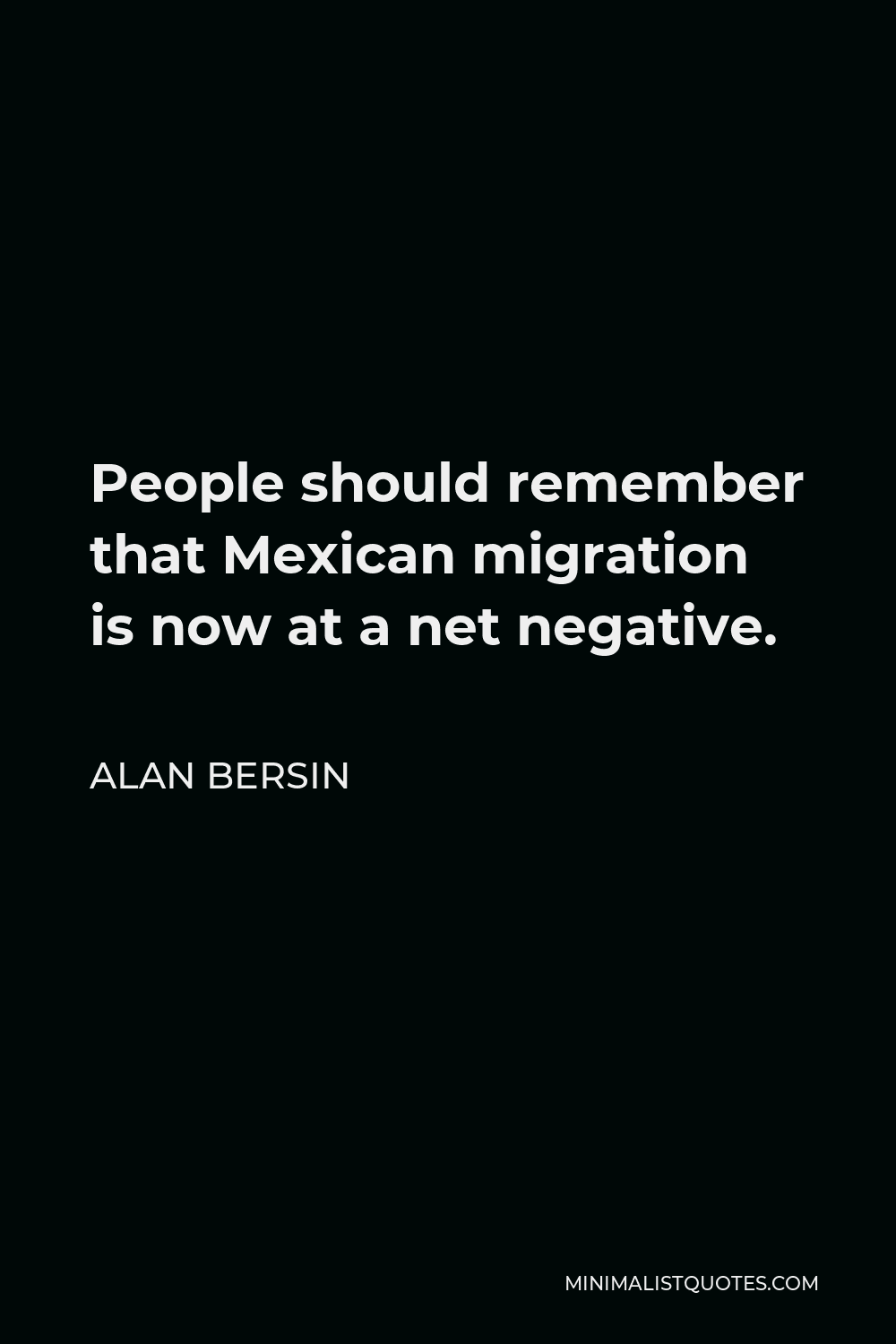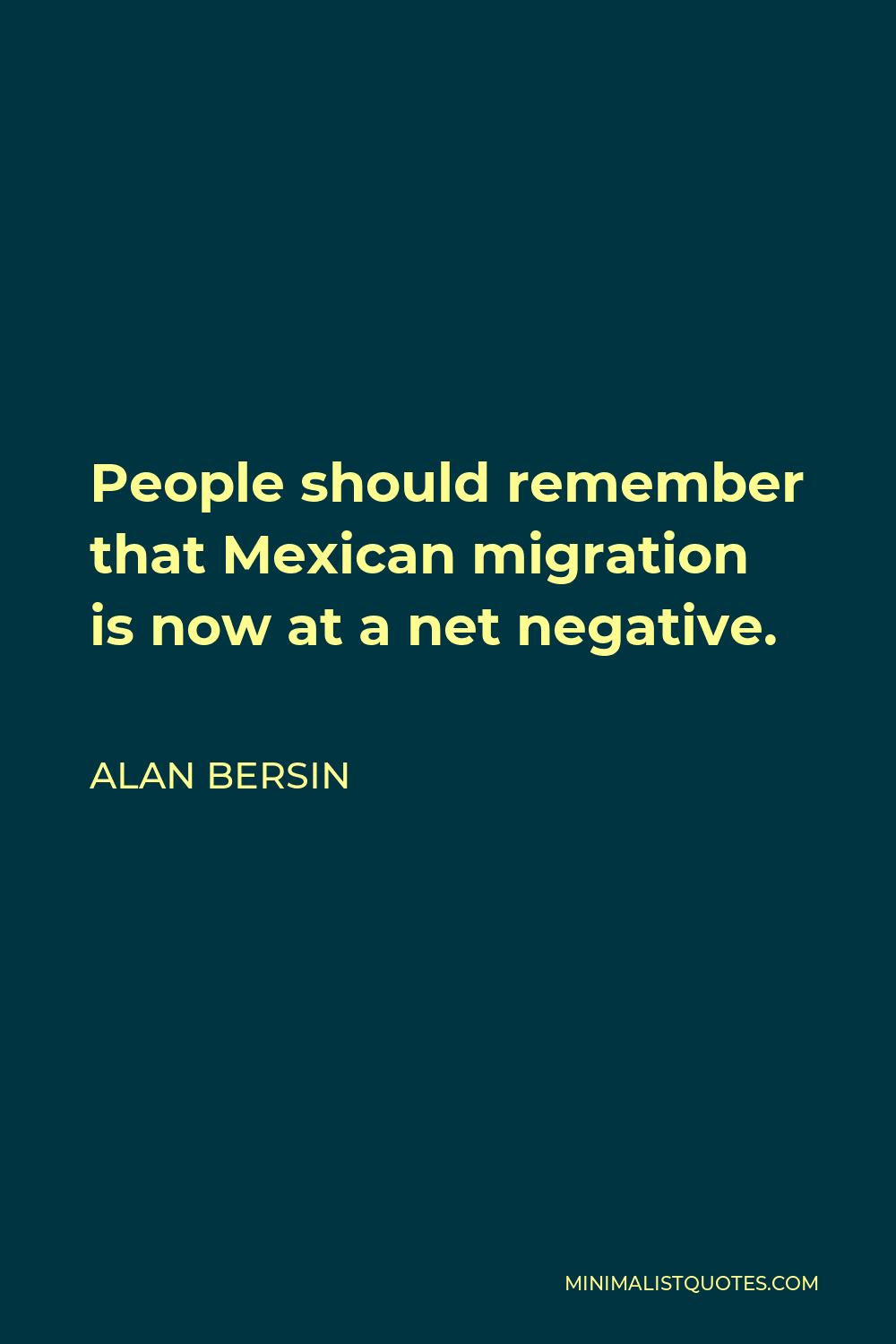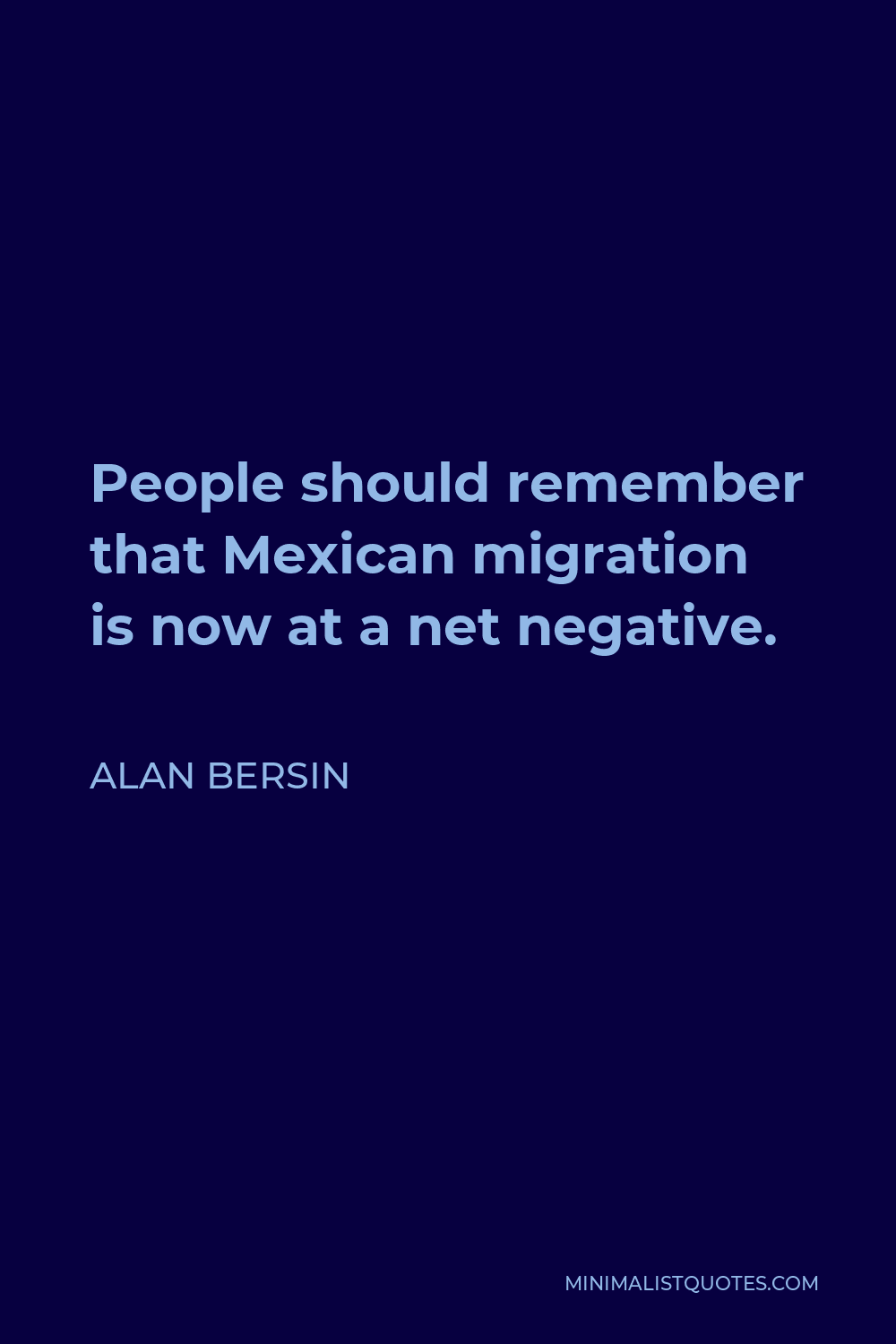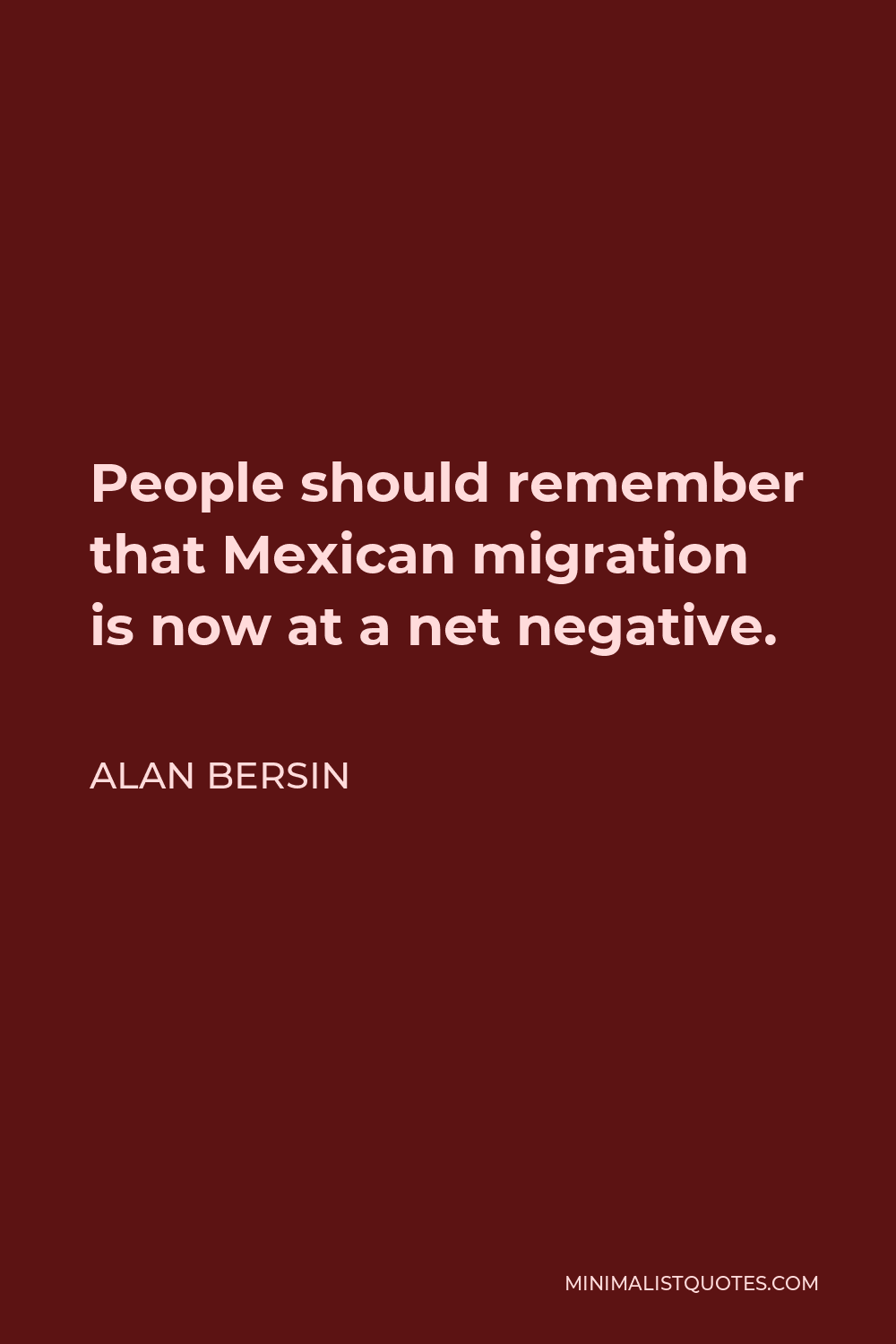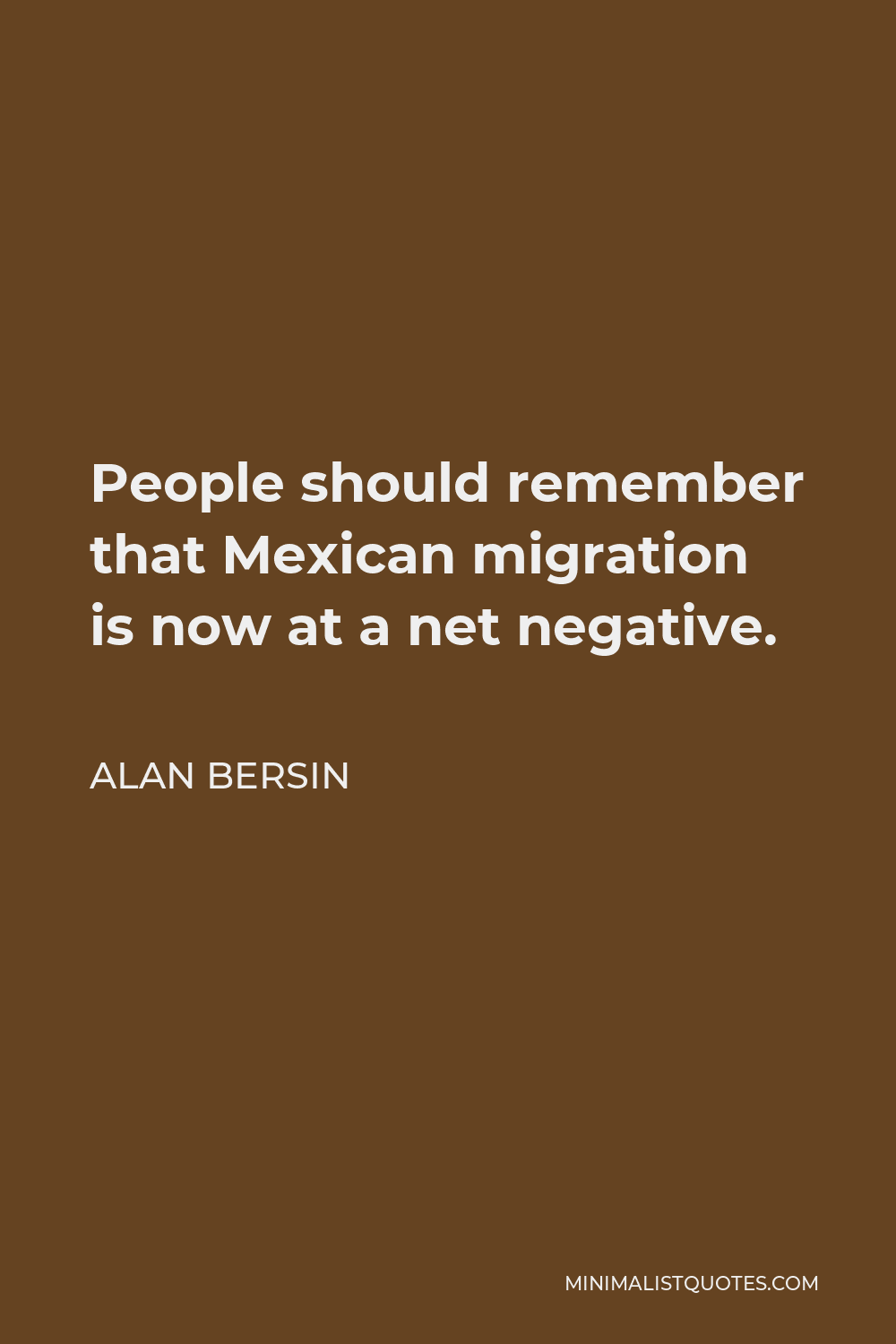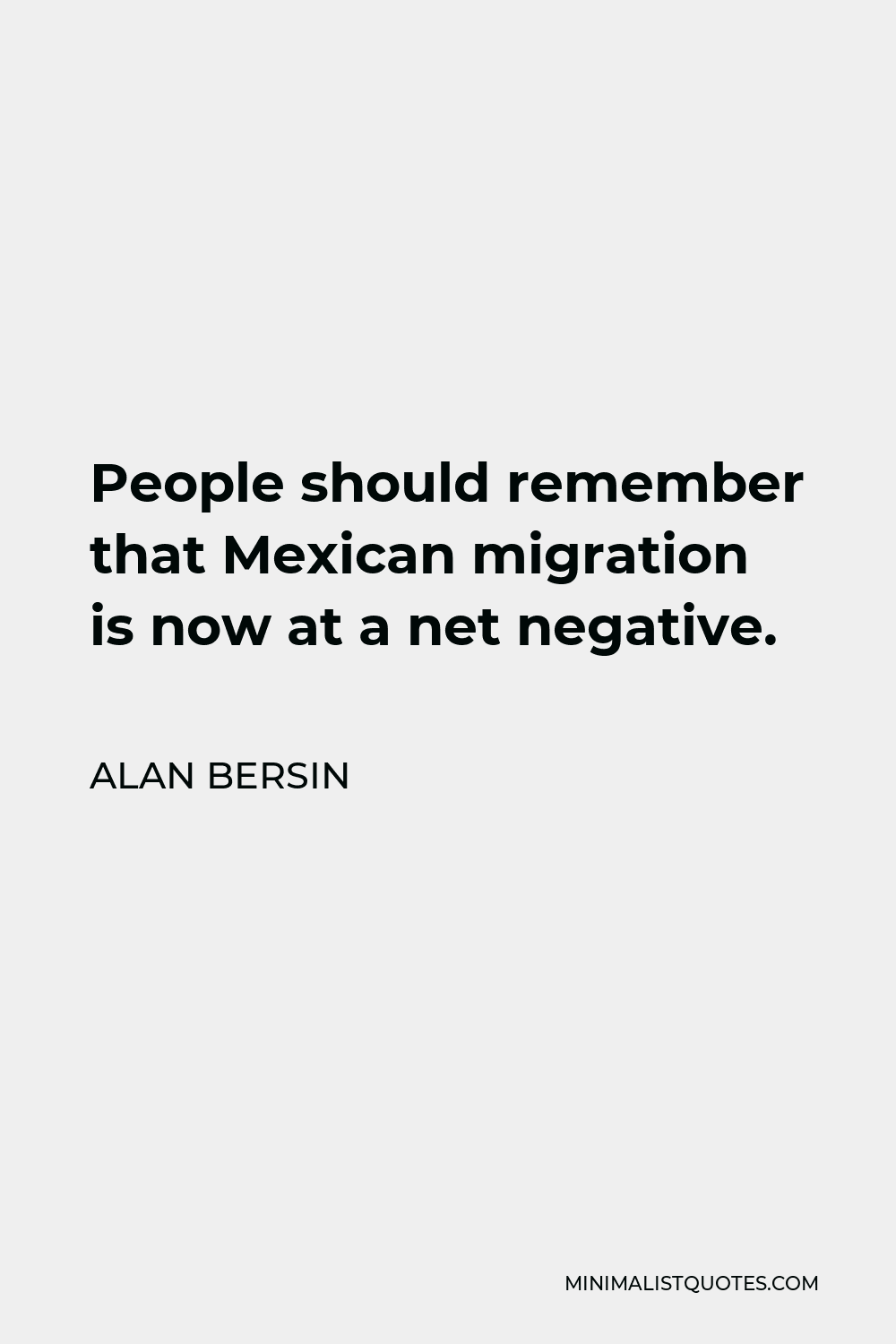Mexico has become a robust democracy with a robust press and an active legislature.
ALAN BERSINPeople should remember that Mexican migration is now at a net negative.
More Alan Bersin Quotes
-





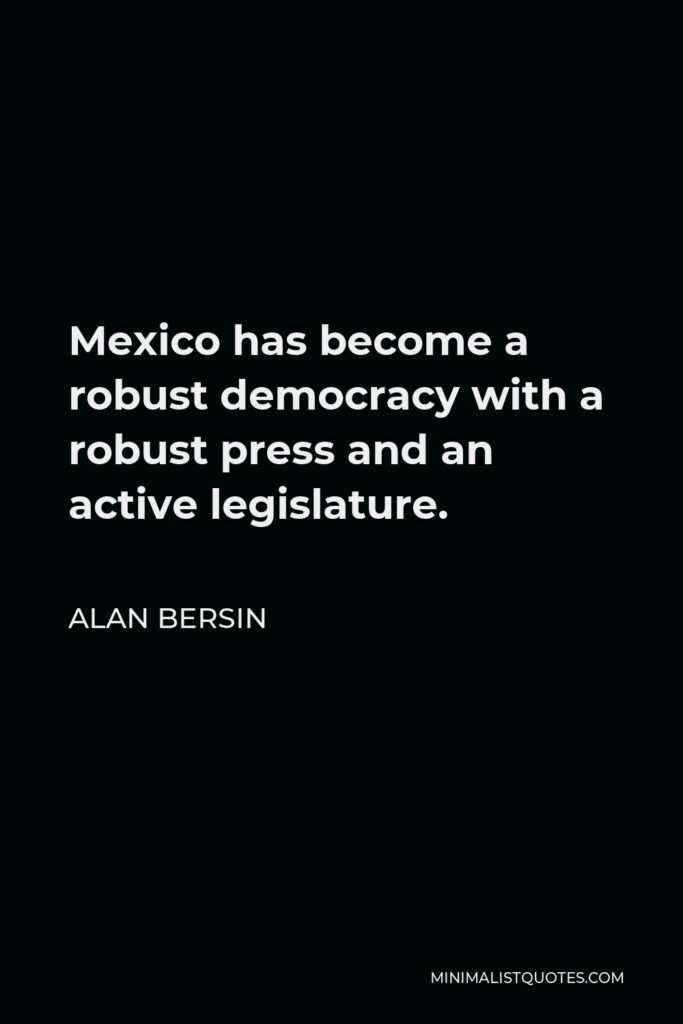

-





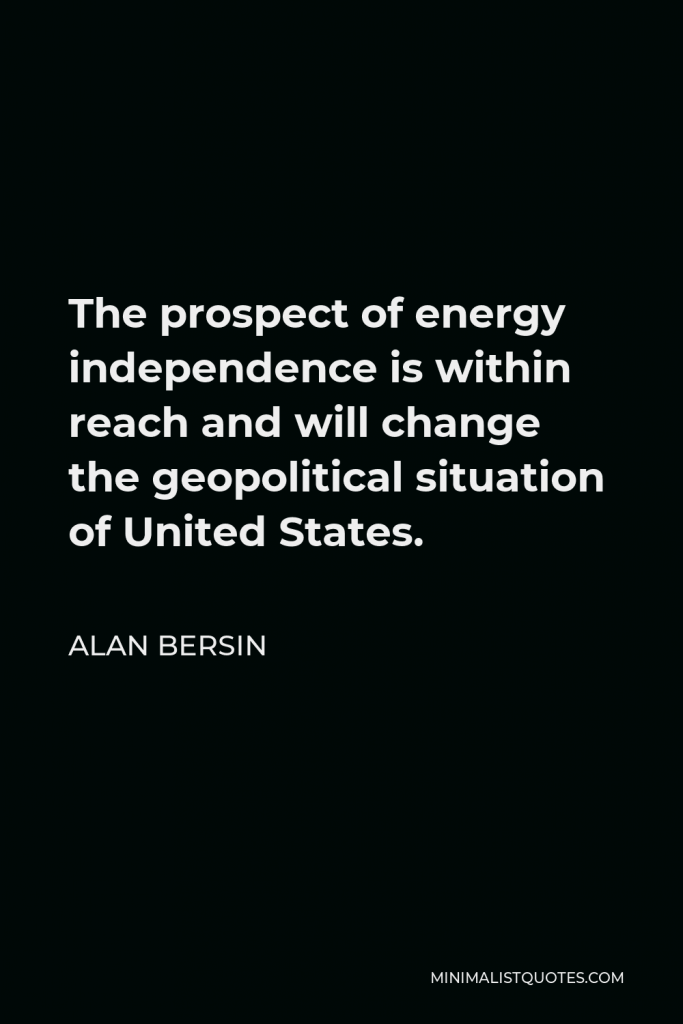

The prospect of energy independence is within reach and will change the geopolitical situation of United States.
ALAN BERSIN -





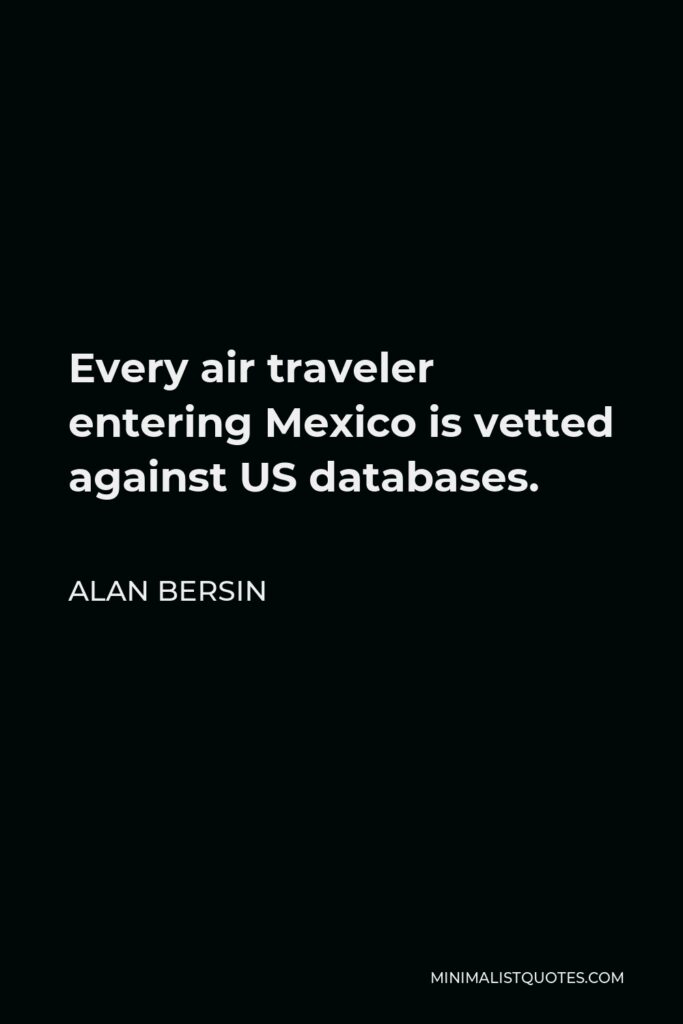

Every air traveler entering Mexico is vetted against US databases.
ALAN BERSIN -





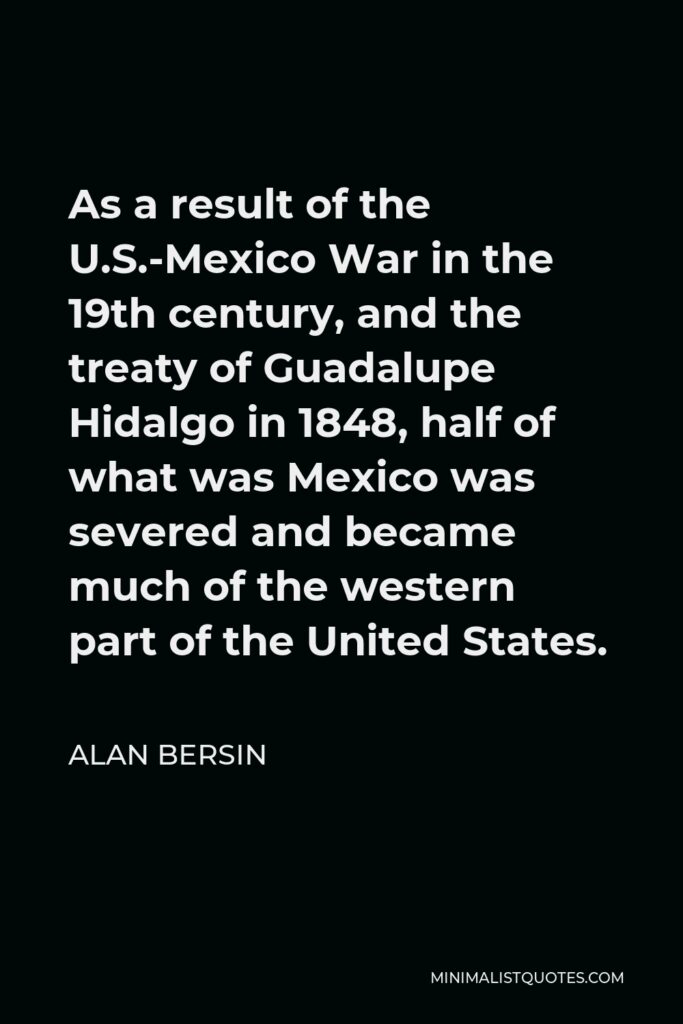

As a result of the U.S.-Mexico War in the 19th century, and the treaty of Guadalupe Hidalgo in 1848, half of what was Mexico was severed and became much of the western part of the United States.
ALAN BERSIN -





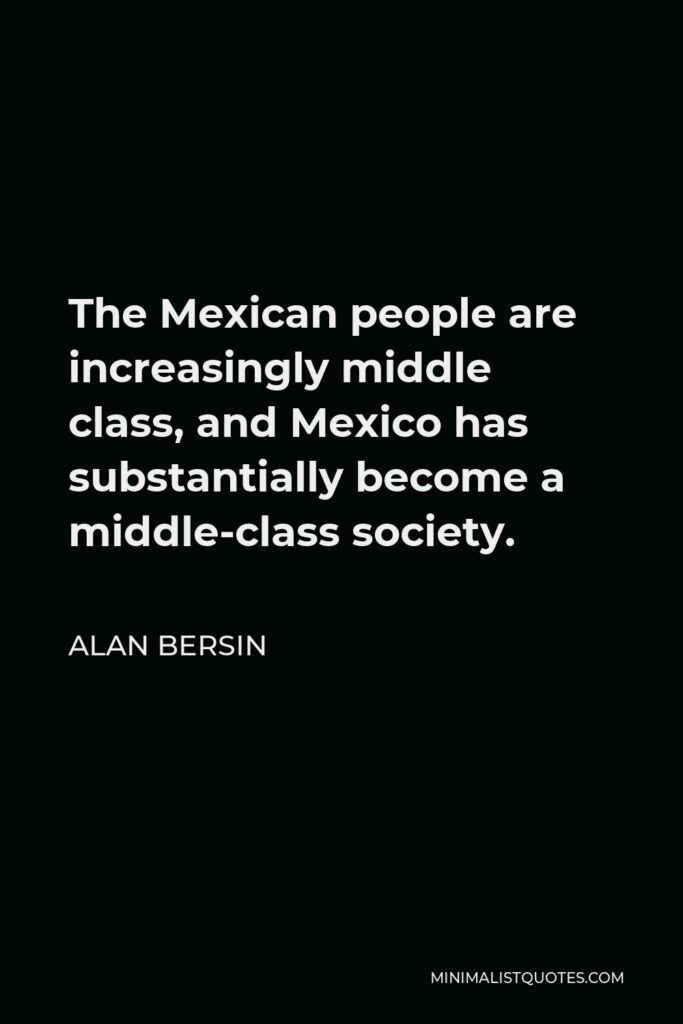

The Mexican people are increasingly middle class, and Mexico has substantially become a middle-class society.
ALAN BERSIN -





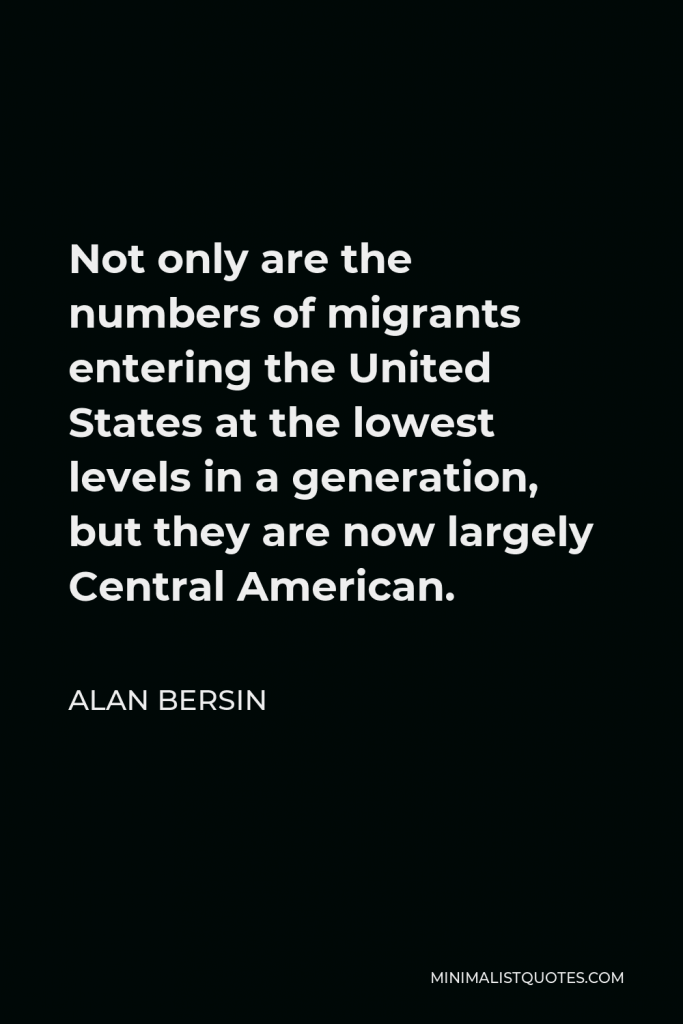

Not only are the numbers of migrants entering the United States at the lowest levels in a generation, but they are now largely Central American.
ALAN BERSIN -





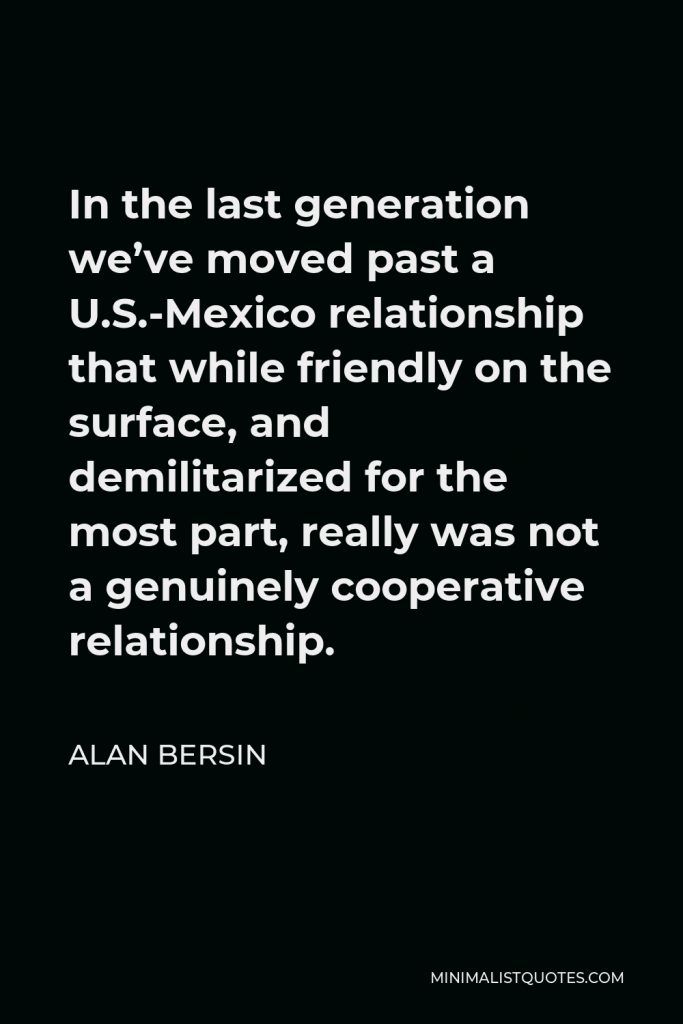

In the last generation we’ve moved past a U.S.-Mexico relationship that while friendly on the surface, and demilitarized for the most part, really was not a genuinely cooperative relationship.
ALAN BERSIN -





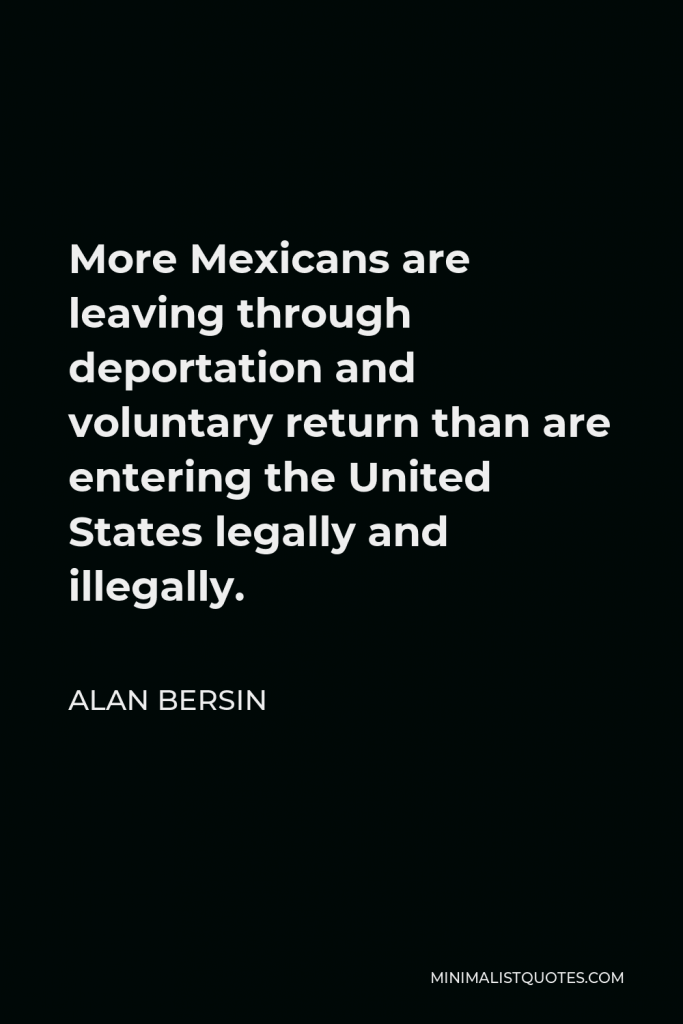

More Mexicans are leaving through deportation and voluntary return than are entering the United States legally and illegally.
ALAN BERSIN -





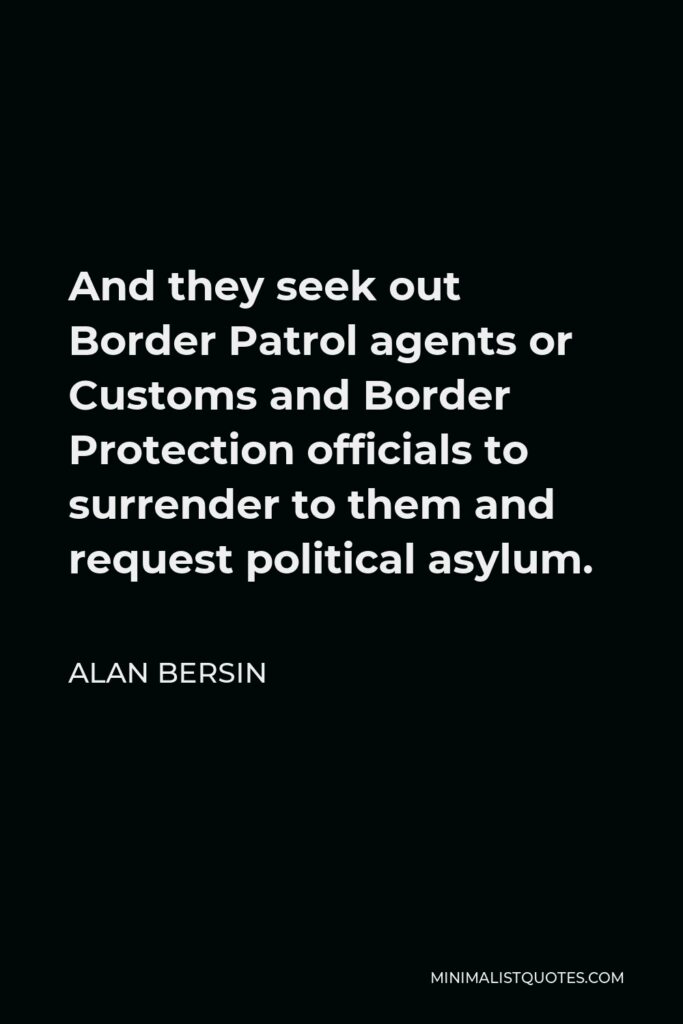

And they seek out Border Patrol agents or Customs and Border Protection officials to surrender to them and request political asylum.
ALAN BERSIN -





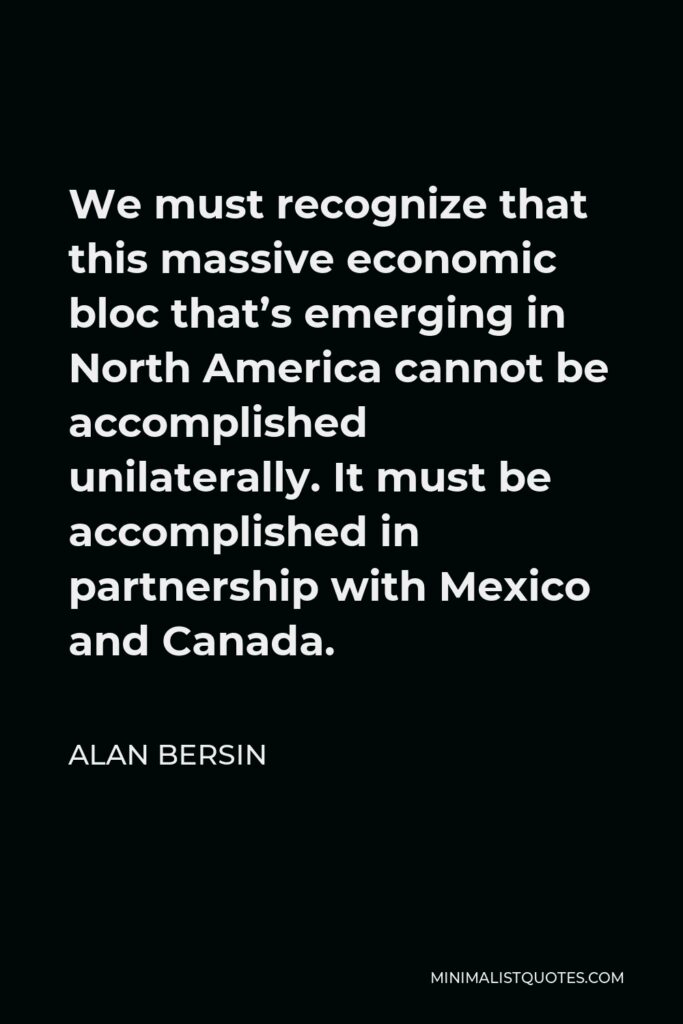

We must recognize that this massive economic bloc that’s emerging in North America cannot be accomplished unilaterally. It must be accomplished in partnership with Mexico and Canada.
ALAN BERSIN -





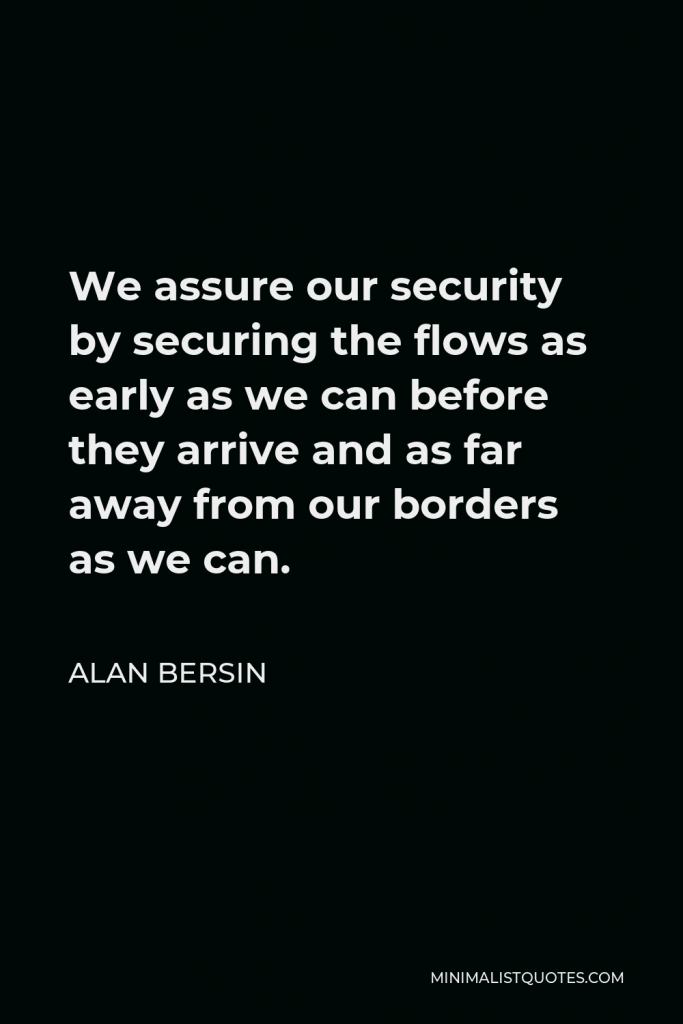

We assure our security by securing the flows as early as we can before they arrive and as far away from our borders as we can.
ALAN BERSIN -





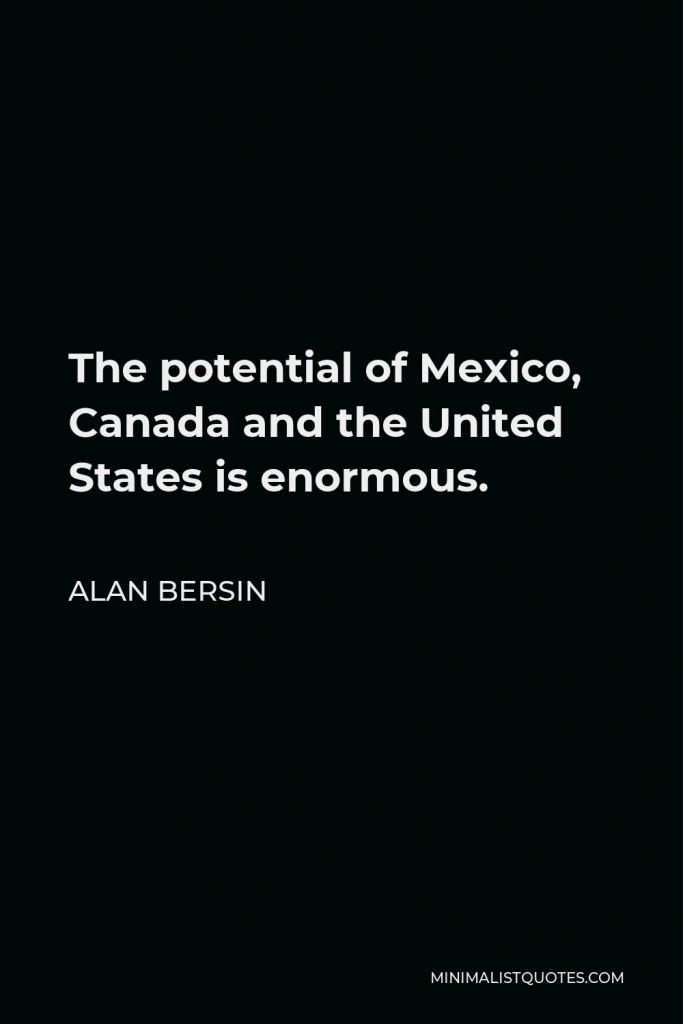

The potential of Mexico, Canada and the United States is enormous.
ALAN BERSIN -







There have been enormous advances since 9/11 to build a very robust set of targeting procedures and watch lists to screen travelers coming to the United States.
ALAN BERSIN -





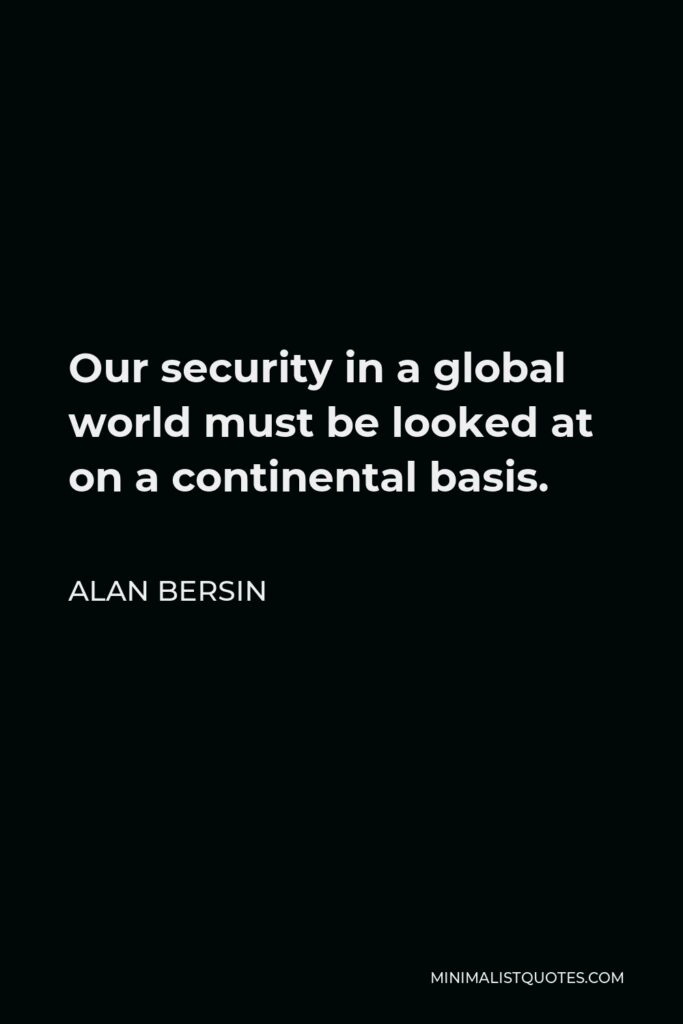

Our security in a global world must be looked at on a continental basis.
ALAN BERSIN -





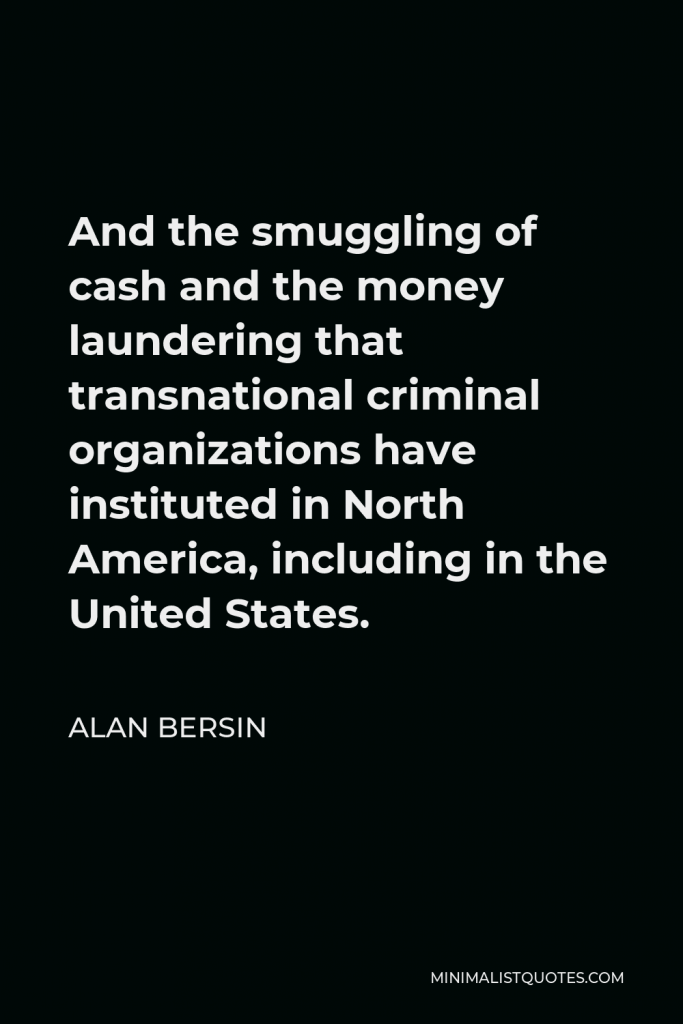

And the smuggling of cash and the money laundering that transnational criminal organizations have instituted in North America, including in the United States.
ALAN BERSIN -





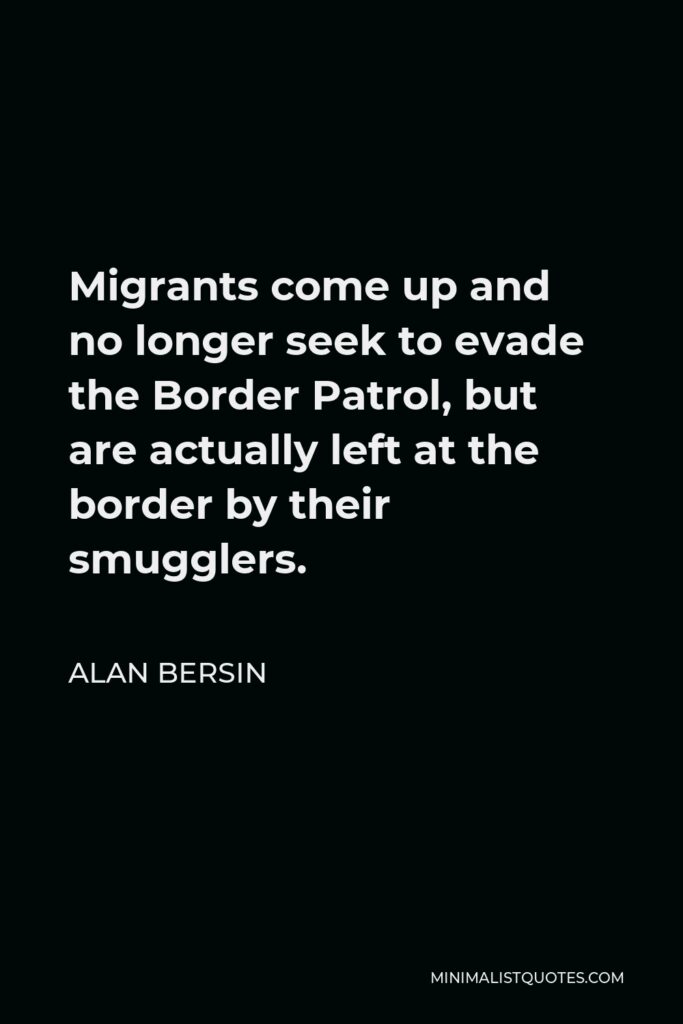

Migrants come up and no longer seek to evade the Border Patrol, but are actually left at the border by their smugglers.
ALAN BERSIN
